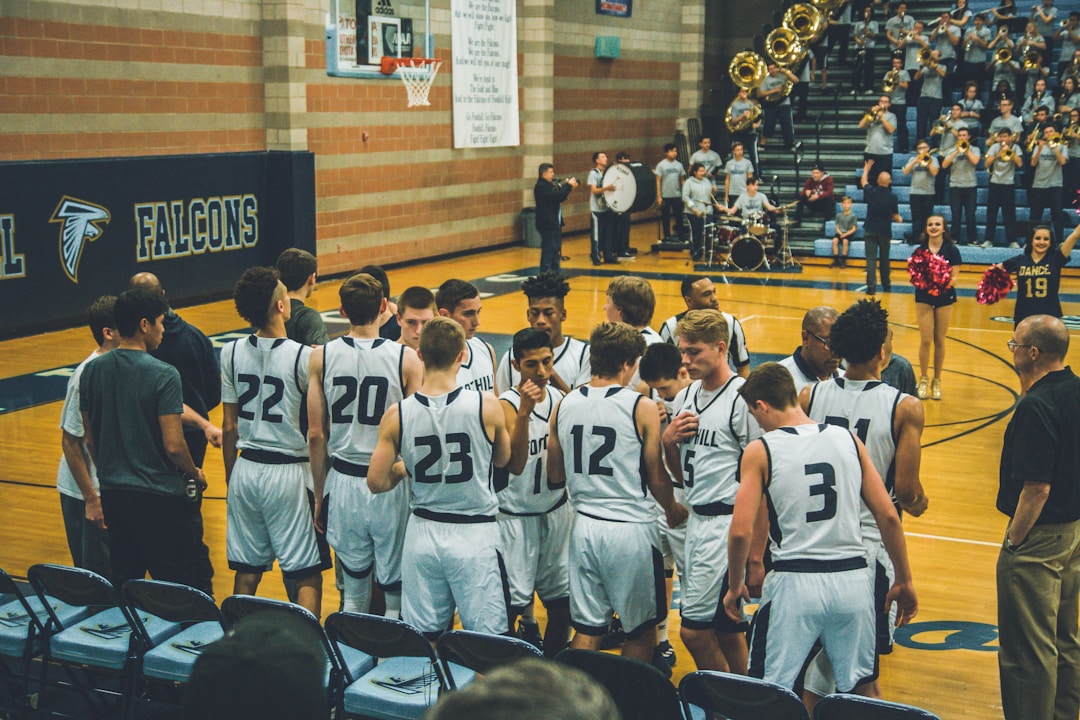The spreading of the Covid-19 Coronavirus across the planet is creating an enormous impact on organisations of all types. Fact is, very few were prepared to cope with such a scenario, also because this pandemic is challenging many assumptions we have had. But how can an eight-kilobyte genomic code (this is what the gene-sequencing came to in explaining Covid-19) create so much disruption? And what is the impact of this on the life of our organisations? I’m not a medical science expert, but I tried to collect the many perspectives found on this disease. Let’s start with an overall scenario, and see what the impact can be on organisations.
- The Covid-19 Scenario
- Sources of Information:
- The Private vs. Public Debate
- What impact will this have on Organisations?
- 1. Establish Resilient Leadership
- 2. Work from Everywhere
- 3. Think Employee First / Customer Second
- 4. Reinvent Supply Chains
- 5. Think of your Ecosystem
- Spreading Hope
- Comments and Feedbacks
- More posts like this
– March 10th to cater for newly available information. I updated the scenario section with a new quote from Nicolas Granatino and the Leadership section with new insights from Hilton Barbour.
– April 15th to cater for new information, adding the Ecosystem as a driver for strategy.
The Covid-19 Scenario
Covid-19 is not a virus that causes high levels of mortality. Its relatively low infection rate is also part of the problem of what we are seeing. Uncoordinated communication, different measures are taken in different countries, with an overall outlook that ranges from “it’s just flu” to “it’s the end of the world”.
For sure, this disease has shown how easy it is to challenge the way we live and work in the “developed world.” Current numbers, except for Iran, show the virus has been spreading more in industrialized countries. And I think the case of the Diamond Princess is emblematic: a Cruise Ship that ended up being a real virus incubator, with guests from over 80 countries, a symbol of the tourism industry that has grown so much over the last quarter of a century.
It seems now certain that the virus had been spreading (undetected) for many weeks before the first cases have been declared. Not just in China, but also in Germany and Italy, and apparently in the USA. And the numbers do not look good for any of the country listed and call for even more protection measures, like the one Italy has adopted. Bill Gates called this a Once-in-a-Century Pandemic. The virus has been spreading at a pace that was not seen before in similar cases, and for the most part this is because of our ways of living. Long-distance travelling, restaurants, partying and an overall ageing population (elderly people make the biggest part of the deaths caused by the virus currently). And the question becomes a very personal one: what is your risk of dying of the Covid-19? What about avoiding contacts? It is a simple mathematical excercise apparently.

Containment seems the keyword for this virus, and it’s easy to see how with a simple visual, seen in Figure 2. The just-announced containment area announced by the Italian government, which encompasses the most critical regions for its GDP which now encompasses all of Italy, it’s a sign that the situation is really bad. (If you want to read an account of the current situation in Italy, read thisTwitter thread that illustrates what is happening). Governments need to quickly take a side: public health or economic recovery?
A difficult stance to take, especially if you consider the latest developments. In his last newsletter, Nicolas Granatino makes a point observing that some governments are taking a different approach, trying to balance more public health and GDP, also supporting a different theory than containment.Especially if we consider the bleak experience of the Second Wave of the 1918 Spanish Flu: which hit the UK at very high rate as the country chose to give precedence to war endeavor the year before.
The reasoning consists of getting part of the population exposed now so as to build some immunity amongst it to face the virus in the future. It is the second season of the famous Spanish Flu which was the deadliest. It poses a great moral conundrum: accept deaths now to lower death toll later.” Can democracies really accept this?Nicolas Granatino, Coronadaily March 9th 2010
This is where a significant issue seems to come up: too many governments seem to be stopping in understanding how to face this crisis (or is it, in reality, a strategy, as Granatino suggests?), often holding information or focusing solely on the positive side. Some are fighting in planning a response, including the US where currently the testing campaign seems a real fiasco.
I have the impression that all our scenarios or reaction systems, especially at the decision-making level, were prepared for an Ebola-like outbreak: confined in some poor areas of the world easy to maintain. Instead, we got a virus that has attacked the heart of the economic system of the West (let’s remember that China is a big part of that system, thanks to the integration of supply chains across the world), and has exploited our specific way of living and working, but above all our schizophrenic way of communicating, which is today causing more harm than good.
Sources of Information:
The Private vs. Public Debate
What this crisis is bringing up is a new big discussion about what should be the Public interest and what instead Private. Investment in vaccines has been lagging for the past 15 years, even if we have already seen two virus crisis in this period. Investments in Public Health have been slashed in most western countries. Most resources have been going into a financial sector that is merely useless into this period of crisis. And the questions that now come are why? We tend to do everything in an emergency. Our western democracies seem to be entirely afar from concepts like prevention.
On Wednesday this week, the US Congress celebrated its 231st anniversary. That day, it authorised an $8.3bn emergency coronavirus response funding. That $8.3bn represents 231 years of coronavirus R&D funding at the recent $36m per annum rate. Is the universe telling us something?Azeem Azhar, Exponential View
But this pandemic is going to challenge also other focus areas of public policy: how much this will affect the widening economic gaps in communities around the world? So far, the most significant impact has been taken by countries where a universal health care system exists. But the toll, from an economic point of view, is anyway substantial. What about when it will hit the US with more significant numbers? How many employees are hourly workers, and are not protected from sick leave? What about other types of workers (self-employed, gig-workers) who can’t afford the losing time and being in quarantine?
Yes, a big part of the knowledge worker middle class can work from home. And probably, we already have been doing this for some time already. But is this sustainable for the entire economic system? Ray Dalio has been writing his thoughts on the Coronavirus with a strong focus on the economic impact, and his view is that this crisis will come and go. But it will not leave the system unharmed. Especially because of the peculiar, supply-side characteristics of what is coming.
Two questions linger on: how worried should I be? what can I do? These questions are being asked in the “Age of distrust” where populism (and lies) are on the rise and leaders in some countries are more interested in spreading disinformation to advance their narrow interest than preparing the public with objective communication and leadership. It is a recipe for panic rather than decisive action. And yet we need the latter.Nicolas Granatino, Coronadaily
What impact will this have on Organisations?
Over the web, there are all types of different ideas of what will happen, from those that see an imminent crash of human culture, while on the opposite spectrum some see “only” an economic downturn.
How human systems respond — but moreover, how human beings in those systems choose to respond — will make all the difference.Nafeez Ahmed, Coronavirus, synchronous failure and the global phase-shift
A critical aspect will be the levels of Societal Resilience that the system as a whole will be able to demonstrate. Nafeez Ahmed has written a long article using a Systemic Lens, where he looks at the Coronavirus as a possible catalyst of synchronous failures of the current economic and political system. However, he also envisions a light at the end of the tunnel due to the level of change these failures will trigger. Even those that seem too envision the Black Swan case that will disrupt our current industrial society, do advocate for a period of focus on Trust and new Leadership.
As the coronavirus crisis kicks off, it is our capacity through love to work, give and share not for monetary gain, not for self-protection, not for any reason other than the intrinsic beauty of the act itself, that will get us through to the other side.Nafeez Ahmed, Coronavirus, synchronous failure and the global phase-shift
The key is finding a way to wave into a new fabric of life and work that is adaptive and not dysfunctional, as too much of recent time has shown.
We used to call this change Digital Transformation. Probably this is the best way to describe this, as one of the biggest experiments of technological and Digital adoption unfolds under our eyes. McKinsey has created a very thorough briefing with interpretations of how the virus can affect businesses, and how these should react.
Resilience is seen as a key enabler for this also at the organisational and individual level. Hilton Barbour makes a point on this as he discusses how shockproof is your Culture. He outlines that we need to look for resilience in the cultural fabric of the organisation, not just in the policies and procedure we are adopting.
I’d propose that any organization’s resilience will come down to the strength and cohesiveness of their culture, not a new list of policies and procedures spun up in the past week.Hilton Barbour, How Shockproof is your Culture?
I totally share this point of view, which is why I believe the first step is to focus on Resilient Leadership, as the catalyst element that can help a corporate culture become more resilient. Most outlets are unfortunately focusing on the wrong aspects: being policies or economic volatility. We need instead to start from the core.
1. Establish Resilient Leadership
From the discussions I have been having with HR colleagues over this past week, the one element that seems existing across many companies is the “Panic Mode” in which most company’s leadership teams seem to act. True, we are facing an unknown situation. But most companies seem to show a true lack of preparedness in many areas. Yes, we can dust off some of the Business Continuity Plans that had been created in the past, we cancel trips and reinforce videoconferencing… but it all seems done through panic mode.
Probably a big reason for this is the over-investment in efficiency over the last years. Most companies are so stretched in terms of resources and capabilities, that even the absence of a single person can create issues. One of the critical factors for business continuity, which is redundancy, has been applied to software and systems, but rarely to people. Organisational Resilience will be challenged this time in a lot of ways (I have been discussing the role of personal resilience at the individual level in another post).

we have underinvested in the things that make us individually and collectively resilient to shocks.Azeem Azhar, Exponential View
The answer is one: Leadership. And I’m not speaking just of the capability of leaders today to respond to the challenge, but the capability of leaders to build organisational resilience.

We need to look at the different elements of our organisation design and check how each of these is prepared for what is coming. Will the disruption be short? Will it last long? Will be limited to some markets or others?
As usual every crisis hides an occasion for development and prosperity: will we be able to capture these effectively?
Effective resilient leadership will also mean we are going to be equipped with the needs for employees: people are worried, and justifiably so. What is the effect of a leader who’s the first to abandon an organisation in distress? Employee Mental Resilience becomes a critical issue to be monitored and managed proactively.
2. Work from Everywhere
Azeri Azhar has identified 6 trends in which the Coronavirus is shaking up the world. One of them is having a direct impact on the way we work: remote working is spreading at speeds never seen before, also in countries like Italy which had seen a lot of resistance to this type of work. The question is how much of this will be left after the emergency? Will our companies learn to cope with less commute and more work from home? Some have even gone to preannounce a real estate crisis, as companies soon realize that office space is not needed to the extent common today. In reality, not every job can be performed from home. And we need to consider this. Then we need to ensure our managers get used to managing a spread workforce. This is a critical issue.
We need to consider that this is going to be a cornerstone of the new Future of Work, as we are seeing more and more an overall reset potential.
3. Think Employee First / Customer Second
The entire discussion about organisations reacting seems to be focused on white collars. But what about the people that interact with the real customer? Sales staff, waiters, delivery agents, drivers, service-technicians… all your “first-line” workers are in the first line in this emergency. What to do?
We need to ensure we protect the income of these workers as a first step (Microsoft is one of the first companies that announced such a measure as it quarantined one of its campuses). Why? Because you need to retain their talent and work commitment. They will be critical when the situation will go back to normality. And you want this to happen as quickly as possible. With retail being hit the hardest, the risk is that an immediate spread of closure panic will happen.
We need also to protect their health. And it is not just about the legal obligations towards the health of their employees. Problem is these people often do not have a choice: if stores are open they need to be in store and in contact with the public. Measures such as filtering access can mitigate the risk, but not take it out completely.
All of these measures will ultimately guarantee the best service also to customers, and ultimately help to bind a relationship with your brand, especially in a moment when the entire concept of the Experience Economy is being challenged.
4. Reinvent Supply Chains
One of the already most impacted areas is the supply chain. Especially with China being “closed” for so many weeks, many industries are feeling the effect of the virus even if the epidemic has not yet touched their locations. I believe this should make us think again in terms of over-efficiency and reliance on distant sources for everything.
5. Think of your Ecosystem
No man is an island stated famously John Donne. This is even more true today as we are questioning the survival of our organisations. We need to recognise that we are not living alone, and the recovery of the economic system is something that needs to be shared. A multi-stakeholder approach is needed, which is why also small examples like those of the Houston based supermarket chain H-E-B are very relevant. The company has ordered food for its employees from many local restaurants, in an effort to provide a bit of relief to these small businesses heavily affected from the lockdown.
Spreading Hope

Across Italy, there is a new source of hope that is spreading. Post-its with the word “Andrà Tutto Bene“, which translates in Everything will be fine” are spreading around the country, especially in the areas more afflicted by the virus.
I believe this to be a sign of a popular reaction to the generally negative news that social media and news outlets are spreading. A real symbol of social resilience in action, joined by the report of the many small supports that people can do. Like babysitting for colleagues, or helping elderly people with their grocery shopping and or directly calling each other while in quarantine, keeping the Human Touch that is so important for everyone.
And maybe, wasn’t John Lennon right? He is credited with saying: ‘Everything will be okay in the end. If it’s not okay, it’s not the end.’

Comments and Feedbacks
More posts like this










